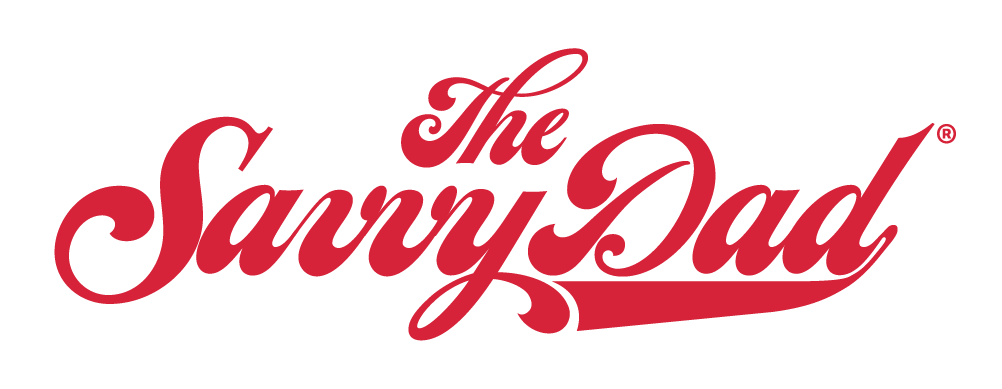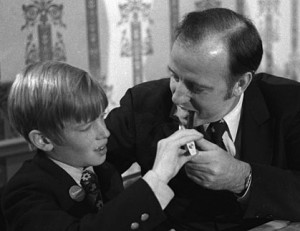“…because unless we stand for something, we shall fall for anything.”
—Peter Marshall in 1947
This story is about NFL Commissioner Roger Goodell.
Remember the movie Jerry Maguire? When Tom Cruise takes a stand by writing a “mission statement” that ultimately gets him fired. (And, he recruits that lonely fish to accompany him on the way out.)
At different times in our lives, we all face the decision — take a stand for what’s right, and fair, and just. Or play it safe, keep quiet, and move on. While we may differ drastically as to where we stand, we should never differ as to why we stand there — always because we believe it is right, and fair, and just.
Unfortunately, some people advocate for the wrong reason. Politicians may be most susceptible given the “re-electionary” nature of their jobs.
But Charles E. Goodell was a politician who stood his ground — risky ground. He was the Republican senator from New York who spoke out against the Vietnam War, sponsoring a bill in 1969 to withhold money from the war effort, much to the dismay of then-President Nixon and Goodell’s conservative voters. As a result, he lost his seat in the U.S. Senate.
Charles’ son is Roger Goodell (yes, that Roger Goodell), commissioner of the NFL for the past seven years. Roger has earned a reputation for having both strength of character and convictions, and has ascended the ladder to become who some say is “the most powerful man in sports.” Roger attributes much of his success to the lessons he learned from his once-Senator dad, Charles.

Roger Goodell, NFL Commissioner
How did the Senator cultivate that strong fiber of success in his son? It started quite young. Charles enlisted Roger and his four brothers to rouse campaign support on the streets of Manhattan when they were just kids.
“They would dump us on the corner, Fifth Avenue, a busy place. ‘I’m Senator Goodell’s son. Please vote for my father,’ Roger recalls fondly.
And about the bill his dad supported,
“He explained it to all of us. He made it clear to us that there would be a lot of people who didn’t agree with his position and were going to say things about my father.”
Vice President Spiro T. Agnew was one of those people. Roger continues,
“There are five boys in my family, and we are nothing if not protective of our father. Spiro Agnew in particular, I remember, attacked my father, and that didn’t sit well with the Goodell boys.”
The Goodell boys had major respect for Dad, as Roger explains,
“It was the right thing to do, and it did have some serious consequences to his political career. That was a valuable lesson to me — taking that position would be the end of his political career. He was obviously hoping people would see it was the right thing to do, but against the president’s weight, the weight of the Republican Party, it would be difficult, but he did it.”
Marty Meehan, previously a Democratic representative from Massachusetts, is now the Chancellor at UMass Lowell. He sponsored an honorary doctorate degree for Charles Goodell, saying, “It took political courage for a leader to take a stance against his own party.”
Roger accepted the posthumous doctorate on his father’s behalf.
This is not about politics. It has nothing to do with whether Senator Charles Goodell’s position on Vietnam was wrong or was right. This is about a father who stood for what he believed was right, in spite of the risk, and at the expense of his political career. He raised a son with the strength to do the same.
His Dad’s courage, in remaining true to his beliefs, is an inspiration to his son each day. Roger proudly displays his father’s original S-3000 bill on his office wall for all to see.
Roger Goodell was born February 19, 1959. At Bronxville High School, he was the captain of the baseball, football and basketball teams, and was selected Athlete of the Year as a senior. However, injuries kept him from playing in college. He began his career in the NFL in 1982 as an intern under then — Commissioner Pete Rozelle. He also served a brief internship for the New York Jets football team in 1983, returning to the Commissioner’s office in 1984 as a public relations intern. He was chosen to succeed Paul Tagliabue as Commissioner of the NFL in August of 2006. Goodell was in competition with four other finalists for the position and finally won by a close vote on the fifth ballot.










